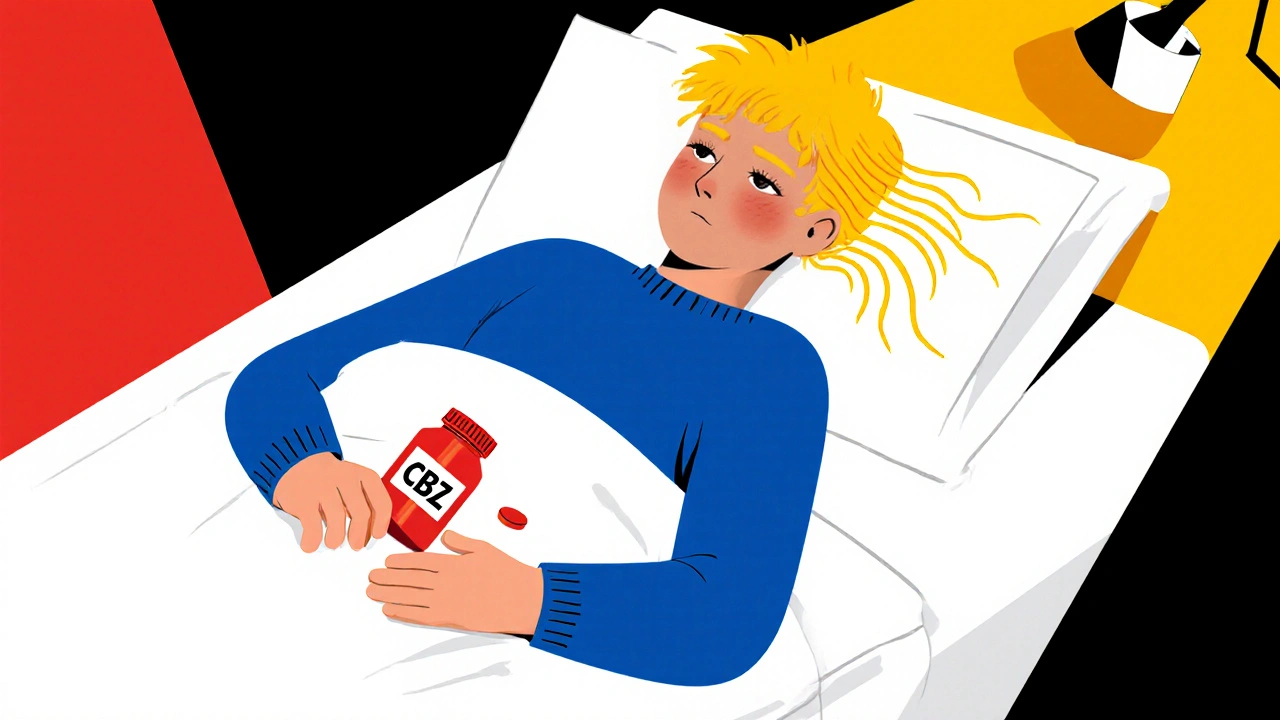Carbamazepine Hair Loss: Causes, Solutions, and What You Need to Know
When you take carbamazepine, a widely prescribed anticonvulsant used to treat seizures, bipolar disorder, and nerve pain. Also known as Tegretol, it helps stabilize electrical activity in the brain—but for some, it comes with an unexpected side effect: hair loss. It’s not the most common issue, but enough people report thinning hair or increased shedding that it’s worth paying attention to. If you’ve noticed more hair in your brush, shower drain, or on your pillow, you’re not imagining it—and you’re not alone.
Carbamazepine doesn’t attack hair follicles directly. Instead, it can disrupt the normal hair growth cycle, pushing more follicles into the resting phase (telogen) than usual. This leads to a condition called telogen effluvium, a temporary form of hair shedding triggered by stress, illness, or medications. Think of it like your hair going on pause. The good news? It’s usually not permanent. Most people see regrowth within 3 to 6 months after adjusting their dose or switching meds. But figuring out if carbamazepine is the culprit isn’t always easy. Other factors—like stress, thyroid issues, low iron, or even genetics—can mimic the same pattern. That’s why tracking your symptoms and talking to your doctor about blood tests (like ferritin, TSH, and vitamin D) matters.
Some people manage this side effect by switching to another anticonvulsant like lamotrigine, a mood stabilizer with a lower risk of hair loss. Others stick with carbamazepine but add supplements like biotin, zinc, or iron if levels are low. There’s no magic pill, but small, consistent steps often make a difference. You might also notice that hair loss gets worse during periods of high stress or illness—timing matters. Keeping a journal of when shedding started, what else changed in your life, and how you feel overall can help your doctor connect the dots.
What you’ll find below are real experiences and practical advice from people who’ve dealt with this exact issue. You’ll see how others handled it—whether they changed meds, added supplements, or just waited it out. Some found relief quickly. Others struggled for months. No two stories are the same, but they all point to one thing: you’re not stuck with this. There are ways to respond, and you’re not alone in figuring it out.

Carbamazepine‑Induced Hair Loss: Causes, Prevention & Management Guide
Learn why carbamazepine can cause hair loss, who’s at risk, and practical steps to prevent or manage thinning while staying on the medication.
read more




